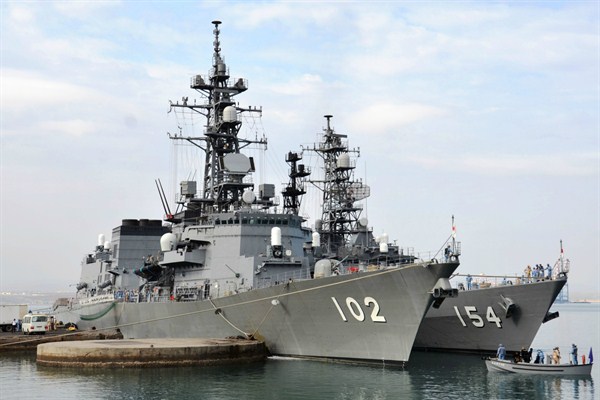The world’s newest mega-dock opened last month in Djibouti, the strategic real estate agent to world powers that is leasing access to the highest bidder. In a move to widen its African investment portfolio, China fronted the $590 million needed for the 1,700-acre Doraleh Multi-Purpose Port, the first of four docks and other infrastructure projects in Africa that are central to China’s grandiose Maritime Silk Road master plan.
This comes as Djibouti gets more crowded. The small, strategically located country in the Horn of Africa already hosts U.S., French and Japanese military bases and will soon add a Saudi military facility. China’s first foreign naval base is set to open sometime later this year, next to the Doraleh port.
With these two major commitments, China has swiftly become Djibouti’s biggest investor, with billions in loans to its indebted government. But that status comes with surprising political and geostrategic baggage.

